It’s important not to be too immediately dismissive of poor Craig Raine. Book reviewers and editors like him, who invent rigid literary principles and then dismiss anything that fails to embody them, have been on the decline since the 1970s. It’s true that one would probably sooner go for guidance to a generous reader who tries to discover what an interesting book is seeking to do, and how it achieves it. But the principle-wielder is an endangered species, and however ill-founded the principles themselves may be, as readers we might welcome the existence of one or two.
The trouble is, no one is really interested any more. The day I received this book in the post, I found myself sitting at dinner next to one of Raine’s former protégés, and raised with him the curious fact that two of his recent books were entitled The Human Comedy and A La Recherche du Temps Perdu. These offerings had passed me by entirely, and one wondered what sort of person Raine was. ‘Poor old Craig,’ the protégé said, laughing merrily. ‘You see — he thinks it annoys people.’
There is something inexpressibly poignant about that, and about the extraordinarily preening title of this book. Nobody now cares whether a retired Oxford don is pretending to cast a Nobel prize-winner into outer darkness on the basis of his inferior similes, and very few people are going to read any of these essays all the way through without being paid to. Raine goes to the trouble of attempting to insult me personally at one point, but I still can’t remember what he said or why he said it. Dynamite? Blancmange might be a more accurate description.
Raine has carried on publishing poetry since his heyday in the late 1970s, when he founded a minor fad called ‘Martian’ poetry. In recent years, he has started to publish novels, one of which I have now taken the trouble to read. (Christ, the things I do for readers of The Spectator). It bore the same relationship to the novel as a form as those popular stars with a microphone and a Welsh lullaby bear to opera singers. It made some of the same noises, but without troubling to attain any of the necessary technical command.
But if the creative work has declined in influence and quality since the early 1980s, Raine has kept up a career as editor and reviewer. He runs a little magazine called Areté from Oxford, which spends much of its time publishing essays abusing more substantial reputations. He has helped to forward the careers of some protégés, for instance Adam Thirlwell and Patrick Marber — the latter last glimpsed providing additional dialogue for the Fifty Shades of Grey movie; but largely, it must be said, he employs members of his own family.
This week, I picked up a recent issue to find an essay by Raine attacking Penelope Fitzgerald. He found her similies, as well, lacking — being not extravagant enough (Raine’s poetry was praised back in the 1970s for its extravagant way with simile). He also criticised her for using a phrase which he ascribed to Joyce and claimed to find ingeniously paradoxical, about a character’s ‘new second-hand car’. (Perhaps he has forgotten that the English word ‘new’ can mean what the French call both neuf and nouveau. There is no ingenious paradox). His essay was entirely characteristic: pugnacious, missing the point, using his own, minor virtues as universal and complete standards of literary judgment and leaving Penelope Fitzgerald’s real excellences quite untouched.
The assumption of a position of authority is everywhere in More Dynamite, and not always convincing. There is a rather embarrassing essay on the art of libretto-writing. Raine has by now written at least three librettos, none of which has caught on. Still, rather than humbly examining the success of those contemporary libretti which have succeeded in interesting audiences, he insists on talking about his own efforts as though they were the greatest of music theatre successes.
This book concludes with 100 pages on the visual arts. I would not complain about its inadequacies — literary people are often enthusiastic about the visual arts, and have some curious things to say about them — except that Raine does earlier on dismiss John Updike’s essays, saying that ‘as a writer on art, Updike simply does not know enough’ — largely because he describes Degas as an Impressionist. It is true that Degas did not regard himself as one, but we are not obliged to go along with anyone’s descriptions of themselves. A man may aptly be called a berk, even if he hasn’t labelled himself as one.
In these essays on art we hear a lot about Raine’s notebook. ‘My notebook says “plywood cut-out sculpture” ’ (on Picasso). ‘I have nine pages of notes in my notebook’ (on Sickert). ‘You see your reflection … there you stand, pen poised to make notes’ (on Richter). And so on.
Other performances of selfless critical observation abound. ‘You have to see the original. Richter’s paintings are even more unreproducible than most art. “Ema” is a blur…’ (But what difference would that make to reproducibility?) On the RA Hockney show in 2012, ‘Allow four hours at least. There’s a lot to look at, a lot to think about.’ This means only ‘I spent four hours, at least, here.’ But why not six? Why not the whole weekend, for that matter, since we’re only boasting, rather than making a serious point?
The same inclination to boast underlies Raine’s absurd habit of referring to Gentile Bellini’s painting as the ‘Ritratto del Doge Giovanni Mocenigo’, as though it were a title which needed the original language. We don’t talk about the dritte Sinfonie of Beethoven. So: enthusiastic about art, but not knowledgeable, alas.
On questions of literature, where Raine could claim more authority, we have some expected material. Don Paterson is done over; Raymond Carver is ingeniously declared to be a less brilliant writer than his editor, Gordon Lish; the wonderful Derek Walcott is savaged. These are all quite entertaining essays— though twice as long as they need be — and are fine examples of what Oxford used to specialise in: the perverse case, vigorously made.
Of course, we don’t believe a word of them. Obviously, Paterson is a much better poet than Raine, and the piece on Walcott has an extraordinary effect. Every single thing that Raine quotes to demonstrate Walcott’s inferiority as a poet is vivid and strong, leaping out of his sarcastic context. Walcott writes beautifully of the sea: ‘a breaker arched with a sound like tearing cloth/ripped down the stitched seam, a sound Mama made sewing/when in disgust, she’d rip the stitches with her mouth.’ Raine says that this ‘arrives with the air of brazen, bald contrivance one associates with the cod TV host Alan Partridge.’ Well, if you say so; but it sounds to me as if Raine has simply decided he doesn’t like Walcott and is going to criticise everything he does.
So I bring this book to your attention not because it is any good, or because it deserves to be read, but simply because it won’t be around for very long. Perhaps 50 years ago, when Raine was young, these doctrinaire provocations battled it out on every side and it didn’t matter how individually absurd they were. And it doesn’t matter now, either — but for quite different reasons. Raine is arguing with straw men, imaginary opponents, fantasy equals. No one is going to put him on a par with Hughes or Heaney; while Walcott, Paterson and Geoffrey Hill will easily survive his worst efforts. Had he subjected his own work to real critical scrutiny, rather than the mere performance of one, he might have become quite good by now.
Got something to add? Join the discussion and comment below.
Get 10 issues for just $10
Subscribe to The Spectator Australia today for the next 10 magazine issues, plus full online access, for just $10.
Available from the Spectator Bookshop, £27. Tel: 08430 600033
You might disagree with half of it, but you’ll enjoy reading all of it. Try your first month for free, then just $2 a week for the remainder of your first year.

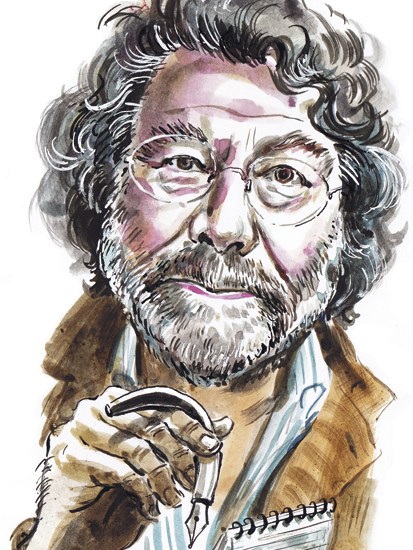


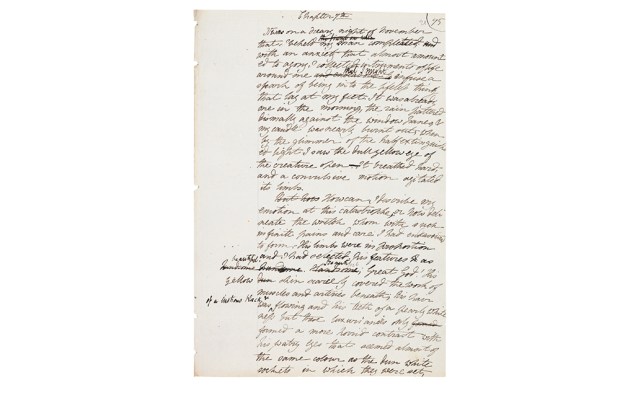
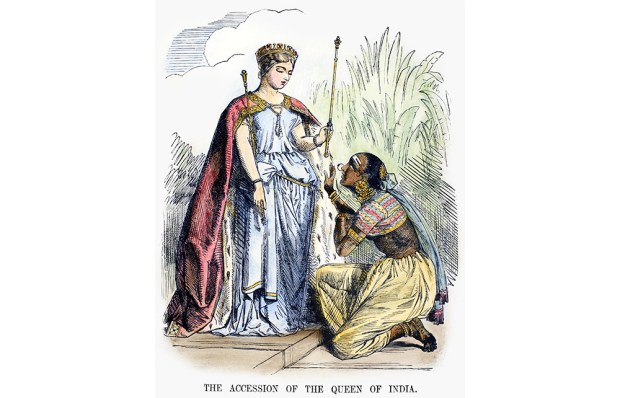
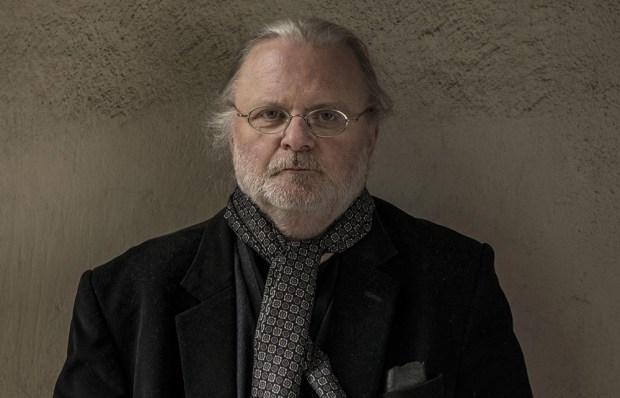
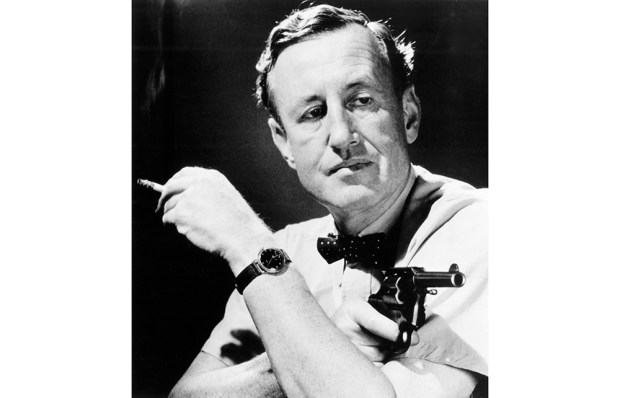






Comments
Don't miss out
Join the conversation with other Spectator Australia readers. Subscribe to leave a comment.
SUBSCRIBEAlready a subscriber? Log in